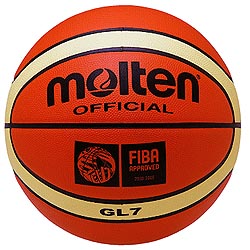Western District Limits Expert Damages Testimony in Unfair Competition Case
On Aug. 1, the Western District granted in part and denied in part defendants’ motion to limit plaintiff’s damages expert testimony in Baden Sports, Inc. v. Molten. The case turns on Molten’s sale of “dual-cushion technology” basketballs, which Baden claims infringes its patent and constitutes unfair competition. STL previously wrote about the case here. The 43(B)log wrote about the case here.

Molten moved in limine to limit Baden’s expert testimony under Rule 37(c), which prevents a party from offering at trial evidence it failed to disclose in an expert report as required by Rule 26(a)(2)(B) or in a supplemental disclosure under Rule 26(e)(1). Trial is scheduled to begin tomorrow.
With regard to expert Scott Hamilton, Judge Marsha Pechman found that preclusion of certain testimony was proper. Mr. Hamilton’s report stated that Baden had asked him to assess damages from Molten’s alleged patent infringement, unfair competition and other claims as stated in Baden’s Third Amended Complaint. In his report, Mr. Hamilton stated he did not calculate the royalty rate that would compensate Baden for Molten’s alleged patent infringement because Molten had not yet provided copies of its financial statements and other data he needed to make the calculation. Thereafter, Molten supplemented its sales numbers and deposed Mr. Hamilton. Baden sought leave to allow Mr. Hampton to provide a supplemental report in which he would apply his previously-disclosed methodology to the numbers provided after his original report.
The court found his failure to promptly supplement his report violated disclosure rules. As the court explained: “Although Defendants provided all necessary information by April 25, Mr. Hampton has not yet provided a supplemental report. Under Federal Rule 26(e)(1), Baden was required to supplement Mr. Hampton’s disclosure no later than June 25, 2007. This delay of over three months is not justifiable. Once Molten produced additional disclosures in April, Badden should have promptly supplemented Mr. Hampton’s expert report. Badden’s offer to allow Molten to depose Mr. Hampton again, now six days before the start of trial, does not remedy the prejudice created by this late disclosure.” Therefore, the court limited Mr. Hampton’s testimony at trial to the information and opinions he expressed in his report and during his deposition.
Molten also sought to preclude Mr. Hamilton’s and fellow expert Richard Yalch’s opinions on the basis that neither expert’s report provided an opinion that Molten’s payments to the International Basketball Federation (known as FIBA) served as a measure of Baden’s Lanham Act damages. The court, however, found that both experts had indeed raised in their reports and depositions the theory of using Molten’s payments to FIBA as a proxy for the benefit that Molten received for wrongfully advertising “dual cushion technology.” Given this disclosure, the court found both experts could express such opinions at trial, though it limited their testimony to the information and opinions they previously had disclosed.
The case cite is Baden Sports, Inc. v. Molten, 2007 WL 2220215, No. 06-210 (W.D. Wash.).
Reader Comments